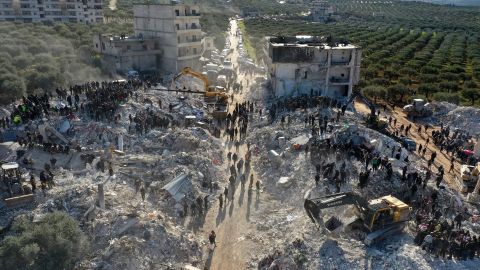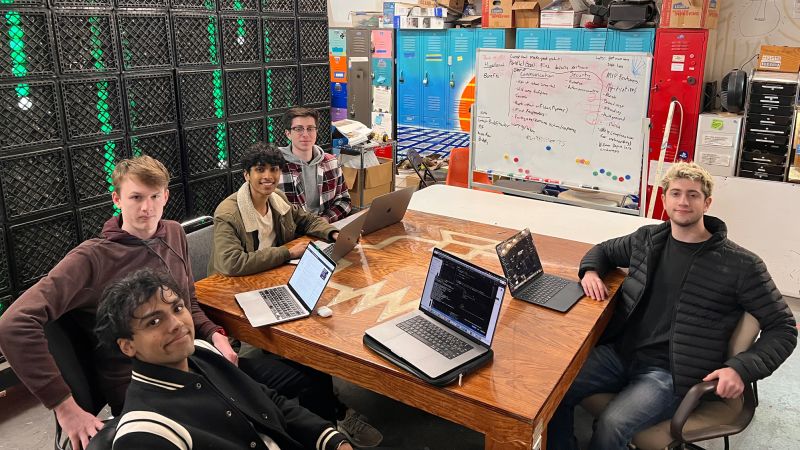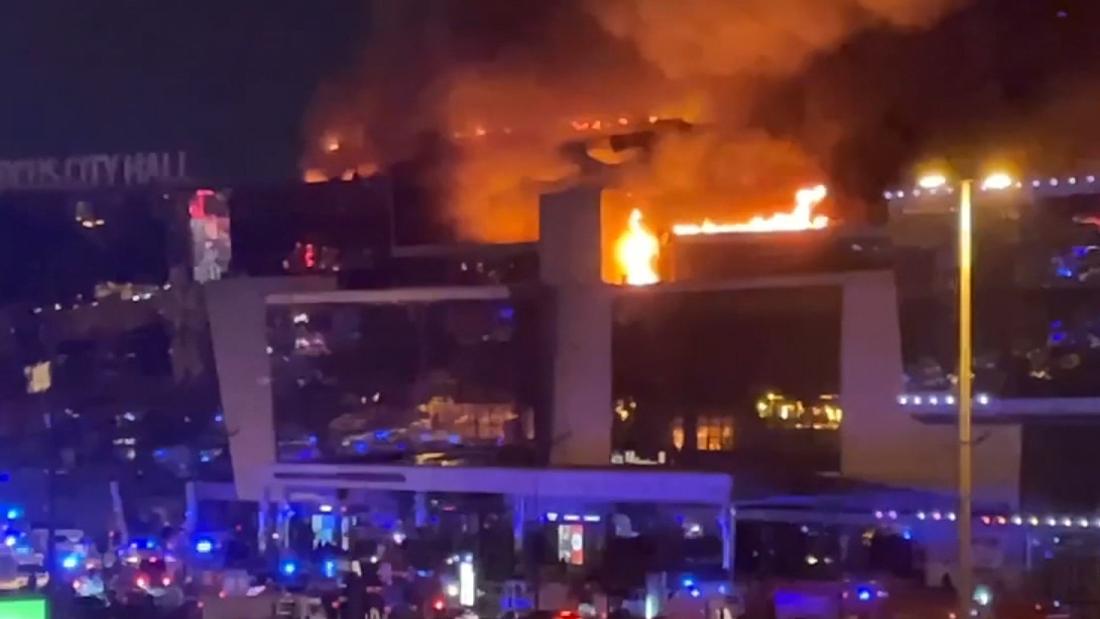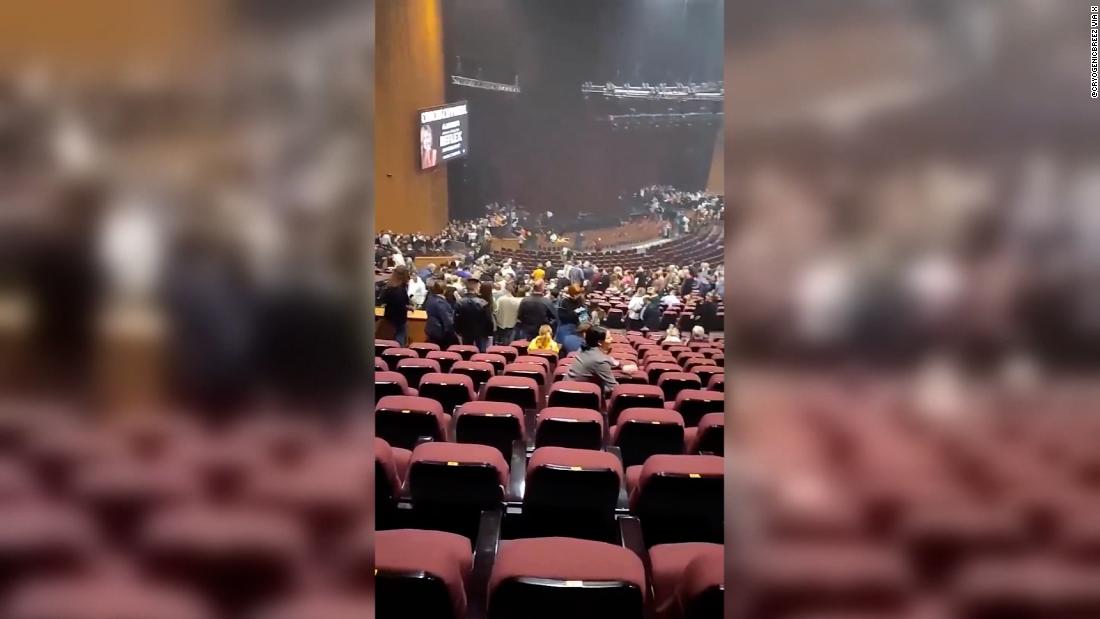CNN
—
Five digital activists have created a website to help provide shelter to survivors of the earthquake in Syria and Turkey that left millions homeless amid freezing winter temperatures.
Just 48 hours after the earthquake reduced cities to rubble, Avi Schiffmann built TakeShelter, a site that connects displaced people with hosts around the world offering their homes as shelter.
“Tens of thousands are currently freezing in the winter cold without shelter,” Schiffmann, 20, told CNN. “TakeShelter puts the power back into the hands of those displaced by the earthquake, allowing them to find shelter now instead of waiting in the cold or at overcrowded relief centers.”
About 50,000 people were killed after the Feb. 6 earthquake, and over 5 million people in Syria alone may be in need of shelter assistance, according to the United Nations Refugee Agency.
Schiffmann worked with four other software engineers – 19-year-olds Krish Shah, Adrian Gri and Will Depue, and Anant Sinha, 21 – to launch TakeShelter. The website was released through InternetActivism, a non-profit they founded to develop digital humanitarian tools, like websites and apps, “to help those impacted by injustice, catastrophe, and displacement.”
“Our generation often feels stuck between desperately wanting to help and feeling like there’s nothing we can do,” Depue told CNN. “I hope InternetActivism shows people how capable all of us are in creating real change in the world. It just requires you to think a bit differently. I’m so excited that we’re seeing real people find the shelter they need on our platform.”
People who wish to open their homes to displaced earthquake survivors can sign up on TakeShelter.org and post a public listing. Displaced earthquake survivors, in turn, can search the site for nearby host families.
Besides advertising on social media, volunteers are on the ground finding displaced people and directly connecting them with hosts through the website. Other Turkish groups, activists and influencers are also promoting TakeShelter through social media and word of mouth, Schiffmann said.
More than 100 families displaced by the earthquake have already found shelter through the website, which has been translated to English, Turkish and Arabic, according to Schiffmann.
“We’ve taken great care to design the site to be intuitive, because we understand that our users are often stressed, in a new location, and in a rush,” said Schiffmann, who a year ago created Ukraine Take Shelter following the Russian invasion of it’s neighbor. That website has connected 100,000 Ukrainian refugees with hosts around the world, according to Schiffmann.
Images of the earthquake’s aftermath in Syria and Turkey are imprinted on Mouaz Moustafa’s mind.
The Syrian American humanitarian aid worker has see dead bodies, children living under trees, mourning families struggling to stay alive in freezing temperatures and streets crowded with survivors, now homeless with nowhere to go.
“Millions are still in the streets and they will die in the cold if they have no shelter,” he said. “The lucky ones have a tent, even if it’s a terrible tent. If they at least have a tarp, they’re lucky.”
Moustafa launched the Syrian Emergency Task Force (SETF) in 2011 to help Syrians displaced by civil war find housing, education and medicine. Now the group has partnered with InternetActivism to start TakeShelter, connecting earthquake survivors without shelter with hosts through the website.

“The partnership means we are able to help shelter Syrians that have been devastated by 12 years of war crimes and now the worst natural disaster in Syria’s and Turkey’s history,” Moustafa said. “Avi and InternetActivism working with SETF can help us take advantage of technology to help people the world has left on their own.”
When combining a digital platform where anyone can sign up and a crisis involving compromised people in desperate situations, there is always a safety risk.
International organizations such as the UN Refugee Agency have warned that refugees and other forcibly displaced people are “an easy target for traffickers, who prey on the precariousness of their situation to exploit them.”
To mitigate the risk and maintain the safety of the website and displaced people who use it, hosts undergo mandatory identity verification checks by taking a live photo of their government ID, which moderators then cross check against a live photo of their face.
TakeShelter includes warnings on each listing to guide refugees on how to safely research a host on social media, alert family and friends on who they’re staying with and how to recognize possible red flags. The site also provides local emergency numbers as well as the UN Refugee Agency hotline for immediate help.
“Avi and InternetActivism has a great track record for safety and we at SETF are ensuring that anyone who wants to host presents the required documents,” Moustafa said. “Our teams on the ground are available to ensure follow up if there are any issues.”
A team of moderators regularly review each listing and report malicious users to local authorities. Users on the site can also report listings.
As a Jewish person whose grandmother survived the holocaust thanks to a family who secretly gave her shelter, Schiffmann understands the long term impact of sheltering the vulnerable.
“When I see lives being saved through our work, I like to think that it enables future generations to live on,” he said. “When people have safe shelter, they can focus on repairing their lives, getting new jobs, settling into new locations, enrolling their kids in school. I hope TakeShelter will allow people to live full lives that they might otherwise not have had.”
His quest to find ways to bridge humanitarian aid with technology in the aftermath of disasters like the earthquake is what led him to meeting his InternetActivism cofounders on social media. All five of them took a break from their universities to develop the nonprofit, which they launched in 2022.
“Our hope is that our work serves as a blueprint showcasing that anyone with a laptop and an internet connection can create massive positive impact for their community. All you need to do is think creatively,” said Sinha, the TakeShelter software engineer.
The group’s goal is to build a suite of humanitarian tools – including TakeShelter – that are instantly ready when crisis strikes, rather than developing tools from scratch every time.
Although many people have moved on from news of the earthquake, the InternetActivism team says they will not slow down efforts to get as many survivors off the streets as soon as possible.
For those displaced by the earthquake, the first and most critical step in their arduous journey towards healing is simply staying alive. Without enough food, proper winter clothing and safe shelter, every cold night they survive is deemed a miracle.
In Syria especially, where access to aid is severely limited and other political dangers threaten the everyday lives of citizens, “safety is a low bar,” according to Moustafa.
“People in Syria are used to barrel bombs, chemical weapons attacks, heavy artillery, shelling, Russian bombardment, ISIS, the list goes on about how vulnerable these displaced people are,” he said.
After witnessing repeated catastrophes in Syria, from airstrikes to starving children and the psychological ramifications of tragedies, Moustafa dreams of a world where people stop forgetting his country,
“They haven’t just survived the worst humanitarian disaster in their country’s history, they’ve been suffering war crimes and have been failed by the international community over and over again,” he said. “At the very least, we need to provide them the humanitarian aid to help them survive, when many won’t survive even another day.”




